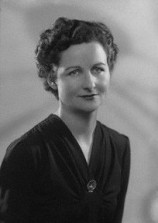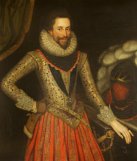Do you lie on the sofa or on the settee? Do you eat pudding or a dessert? Do you wear spectacles or glasses? What does it matter? Well at one time, in post war Britain, that is after 1945, your use or choice of words was said to be an indicator of the social class to which you belonged. A lot of nonsense or a matter for serious debate? Or just lighthearted fun? It all started in 1954 when an article titled Linguistic class-indicators in present-day English by British linguist Alan Ross, Professor of Linguistics at Birmingham University, appeared in a learned but obscure Finnish academic journal.
Ross’ article covered differences in word usage, pronunciation, and in writing style, but it was his thoughts on the differences in vocabulary that received the most attention. He coined the terms ‘U’ and ‘non-U’ to refer to the differences in English language usage between social classes. ‘U’ indicated upper class, and ‘non-U’, not upper class, though it focused on the aspiring middle classes. Ross considered that the middle classes preferred to use fancy or fashionable words, even neologisms (meaning a newly coined word) and often euphemisms, in their attempts to make themselves sound more refined. The speech of the working classes was not dealt with, as in many instances Ross considered they often stuck to the same plain and traditional words that the upper classes used, since being conscious of their status they had no need to make themselves sound more refined. Ross added that ‘it is solely by their language that the upper classes nowadays are distinguished since they are neither cleaner, richer, nor better-educated than anybody else’.

Nancy Mitford (1904-1973) was one of the ‘bright young people’ on the London social scene in the inter-war years, and is best remembered for her novels about upper-class life in England and France, and for her sharp and often provocative wit.
In his article, Ross used the semi-autobiographical novel The Pursuit of Love published in 1945 by the English novelist, biographer and journalist Nancy Mitford, to exemplify upper-class speech patterns. Nancy Mitford was the eldest of the renowned Mitford sisters. There were six sisters, daughters of David Freeman-Mitford, 2nd Baron Redesdale, and his wife Sydney Bowles, and they have been caricatured by the journalist Ben Macintyre, as ‘Diana the Fascist, Jessica the Communist, Unity the Hitler-lover, Nancy the Novelist, Deborah the Duchess, and Pamela the unobtrusive poultry connoisseur’.
Mitford picked up on Ross’ reference to her novel and incorporated the U and Non-U thesis into an article she was writing, The English Aristocracy, for the magazine Encounter. Her argument was that the more elegant euphemism used for any word was usually the non-upper class thing to say, or, in Mitford’s words, simply ‘non-U’. Thus it was very non-U to say ‘dentures’; ‘false teeth’ would do. ‘Ill’ was non-U; ‘sick’ was U. The non-U person ‘resides at his home’; the U person ‘lives in his house’, and so on. Nowadays, the distinction between U words and non-U seems antiquated. Were U words really plainer or ‘better’, or did the upper classes simply need to use them so as to distinguish themselves from everyone else?
| U | Non-U |
| Lunch | Dinner (midday meal) |
| Dinner | Evening Meal |
| Vegetables | Greens |
| Pudding | Sweet or dessert |
| Ice | Ice cream |
| Jam | Preserve |
| (no equivalent, there would be separate containers eg. salt-cellar) | Cruet |
| (Table) Napkin | Serviette (unless you are literally in France) |
| Sofa | Settee or couch |
| Drawing-room or Sitting-room | Lounge or front room |
| Chimneypiece | Mantelpiece |
| Lavatory or loo | Toilet or WC (unless you are in Italy, where ‘toiletta’ is U) |
| Looking-glass | Mirror |
| Mad | Mental |
| Decent | Civil (behaviour) |
| (no equivalent) | Rude (indecent) |
| (no equivalent, except possibly ‘civilised’) | Cultivated or cultured (people) |
| Sick | Ill |
| Die | Pass on |
| Graveyard | Cemetery |
| Rich | Wealthy |
| Smart | Posh |
| False teeth | Dentures |
| Dinner jacket | Dress suit |
| Knave | Jack (cards) |
| Scent | Perfume |
| Spectacles | Glasses |
| Writing-paper | Note-paper |
| Wireless | Radio |
| Bike or bicycle | Cycle |
| Riding | Horse-riding |
| Master or Mistress (also prefixed eg. maths-mistress) | Teacher (children also say ‘Teacher says …’) |
| England (Britain) | Britain |

